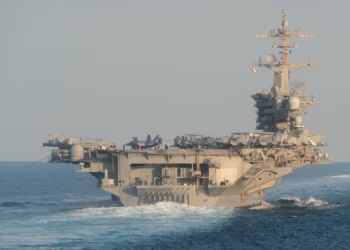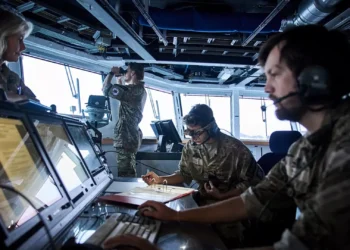TOKYO (Realist English). Mitsubishi Heavy Industries (MHI) has been named Australia’s preferred bidder to build up to 11 general-purpose frigates, in what marks Japan’s first successful export of fully assembled warships — a major milestone for its emerging defence industry.
The initial phase of the deal is valued at up to A$10bn ($6.5bn), with a formal contract expected in 2026, according to the Australian government. The first three ships will be built in Japan, with the remaining eight to be constructed by Austal in Western Australia.
The frigate programme is part of Australia’s broader military modernization strategy amid rising strategic tensions in the Indo-Pacific, which also includes the AUKUS submarine partnership with the U.S. and U.K., and the ongoing construction of Hunter-class frigates in Adelaide.
MHI’s Mogami-class frigate beat out a competing design by Germany’s Thyssenkrupp, following a final-stage contest that also saw earlier bids from South Korea and Spain. Despite concerns over cost and Japan’s lack of experience in overseas naval construction, MHI’s design was selected based on a mix of performance, affordability, and long-term efficiency.
“It’s a big moment in the relationship between Australia and Japan,” said Richard Marles, Australia’s defence minister and deputy prime minister. “We have a strong strategic alignment.”
Pat Conroy, Australia’s minister for defence industry, said MHI’s bid was the “clear winner” across cost, capability, and delivery schedule, with the first ship expected by 2029. He emphasized the advantages of the Mogami design, which requires a smaller crew, is cheaper to arm, and boasts a longer hull lifespan — contributing to lower lifecycle costs.
To oversee domestic production, a new company under Austal’s ownership will handle construction in Australia, with Canberra holding a “sovereign preference share” in the enterprise.
The outcome was closely watched in strategic circles. Japan’s victory not only expands bilateral defence ties but also underscores Tokyo’s intent to become a more active arms exporter, following the loosening of postwar export restrictions in 2014. Until recently, Japan remained a marginal player in the global defence market.
Though Japan has previously sold radar systems to the Philippines, the Australian frigate deal is only its second export of full defence platforms, and its largest-ever military contract abroad. It represents a breakthrough for Japan’s defence industrial base, which has long struggled with limited commercial exposure and restrictive rules.
Shares in MHI surged 3.8% on Tuesday, reaching a new record high. Defence analysts see the deal as a critical step in helping Japanese manufacturers expand capacity, reduce unit costs, and develop next-generation military technologies.
The agreement also signals Canberra’s shift toward deepening strategic cooperation with Japan, a key Indo-Pacific partner, as security concerns over China’s rise continue to reshape alliances in the region.


















